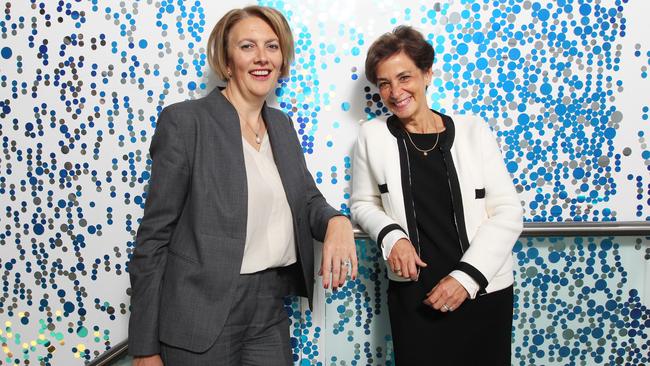Deutsche Bank meets demand of companies seeking faster payment
Banks are benefiting from companies’ increasing management of working capital by offloading their supplier contracts.

Banks are benefiting from companies’ increasing management of working capital by offloading their supplier contracts to reduce the risk that payments fail to come through.
On a trip to Sydney this month, Deutsche Bank’s regional head of global transaction banking, Lisa Robins, said more large companies were keen to reduce the time it takes to receive payments from debtors.
Companies large and small have been reviewing payment terms as weaker economic growth takes its toll on margins and debt repayments, with Rio Tinto this year forced to abandon controversial plans to extend payment terms to 90 days after a public backlash.
Globally, multinationals such as Procter & Gamble and Kellogg have extended terms.
In Australia, a study from East & Partner commissioned by debtor finance company Scottish Pacific found small cash flow concerns were the most stressful element of business for small businesses, which were increasingly eyeing funding from non-banks.
Several new “fintech” companies are trying to tap into the market, allowing companies to sell their invoices to investors.
Naomi Flutter, who has led Deutsche’s Australian-based global transaction banking business since its formation two years ago, said there had been a growing trend of companies “very actively” managing their working capital.
“There is real value to a corporate in Australia in extending their payment terms and truncating their receivable terms. That releases working capital which you can either use to retire debt or reinvest in a business and achieve your return on capital,” she said.
“That should flow straight through to benefits to shareholders.”
In receivable financing, banks like Deutsche buy the receivable contracts at a discount so clients get money quicker and shed the credit risk. Banks also facilitate the opposite situation called supplier financing, allowing clients to extend their payment terms.
Mr Flutter said growing use of receivable financing was a global trend as clients seek to reduce some credit risks, which were better suited to a bank than a corporate. “I wouldn’t say people are sitting there worrying about the credit quality of their debtors, but there are two benefits — working capital improvement, and also as payment tenors have moved out people have thought more about credit issues,” she said.
While not able to reveal how much of Deutsche’s global transaction revenue comes from receivable and supplier financing, Ms Robins said it was integrated in “almost every discussion” the bank has with clients.
Ms Robins, also the bank’s vice-chairman of corporate and investment banking for the Asia Pacific, said the local transaction banking operation had tripled revenues in the past two years, but wouldn’t reveal specific numbers.
More broadly, institutional banking — such as trade finance and transaction banking — has been difficult in recent years as low interest rates, central bank stimulus and hot competition reduced profits for the big four listed domestic lenders.
Compared with giving investment banking advice on mergers and capital raisings, Ms Robins said transaction banking encompassed all areas of a business’s operations and touched the “real economy”. She said: “Basically you’re touching the spine of a company and all of the episodic business is based on actually how well they’ve managed their day-to-day business.”
Ms Flutter, who has spent the bulk of her career in Deutsche’s investment-banking operations, said the bank had to offer more than just debt loans to win big companies’ transaction banking business. She said Deutsche’s target clients are Australian companies operating globally and European multinationals doing business here.
“Lending is sometimes an entree but (clients are) ... not always reliant on having a lending relationship,” she said. “Australian corporates are very demanding and rigorous on how they look at capabilities, you can’t pull the wool over their eyes … so having strong products is what underpins our performance.”






To join the conversation, please log in. Don't have an account? Register
Join the conversation, you are commenting as Logout